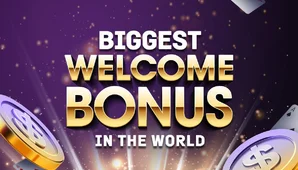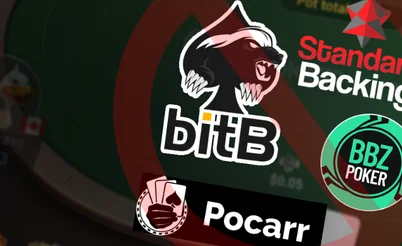Sean Kelly – "How was your World Series this year?"
Daniel Negreanu - "So, good and bad, right? I won the most prestigious mixed game event you can, the one that I wanted to win. It's called the Poker Players Championship, for like 1.2 million. So that was the good news.
The bad news is I played some other big ones and I actually didn't even make money. But yeah, I'll still take it because winning that one was fun."
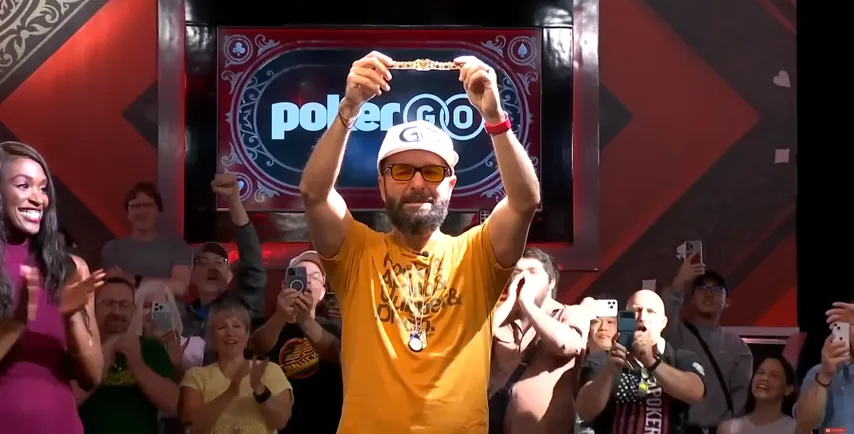
– "How often are you profiting from the World Series every year?"
– "So, most of my life I profited. Well, this year was a very small [loss], but I've lost like three years in a row.
I don't think people understand what poker is like. It's a small sample size, right? You're only playing like 30, 40 events, and you're more often than not going to have a losing period of 30, 40 because the way it's structured, right? You rarely come first, second, or third, and that's where the big money is. When you do, it more than compensates. So let's say you won one out of every three years, you probably could still make money doing that."
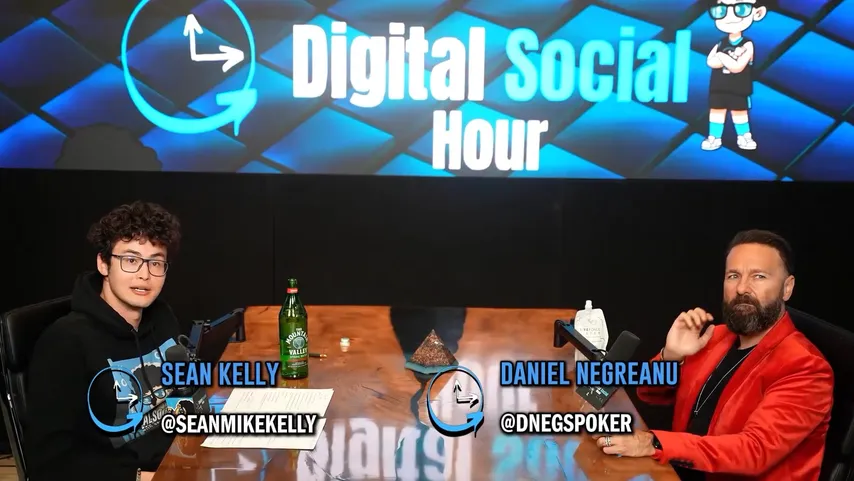
– "Do you think since players are getting so good now that that's also a part of it?"
– It definitely makes it more difficult because your edges are smaller, right? Like 20 years ago, luck wasn't as big of a factor. But let's say you and me are equally skilled, let's say we're dead equal, right? Well, luck is going to make it look like in some cases I'm way better than you, right? Because I'll be up like, you know, a million on you, and then all of a sudden, you know, it comes down because of just distribution and luck.
So at the highest levels, I think it's a lot more difficult for people to discern like who's the best. This isn't like, you know, golf where it's like, "Okay, he shot the lowest score, he's the best. He played the same course as everybody else." Poker doesn't work that way."
– "So it's more like who's hot that day?"
– "People go through streaks, right?
So there's these situations that come up in a poker tournament where like my equity is 50%, your equity's 50%. Whoever wins this pot has a very good chance to win the tournament now, right? And it's totally 50/50. If you go through a streak where you win a lot of those, like you win 80% of them, you're gonna all of a sudden... Everyone thinks, "Oh, he's the best." Right? Whereas if you go the other way and you just lose like 80% of them, people think, "Well, that guy, he's not very good. He never wins."
They don't understand that so much of what separates at the highest level, the difference between the best and like the ones underneath, we'll never really know because of luck.
The results actually, especially in a short run, don't tell you much at all, right? They can deceive you. Right? Like you might play a poker tournament and you win, and you think, "I'm so amazing at it," when everyone around is like, "This guy's terrible. Wait till reality sets in," you know?"
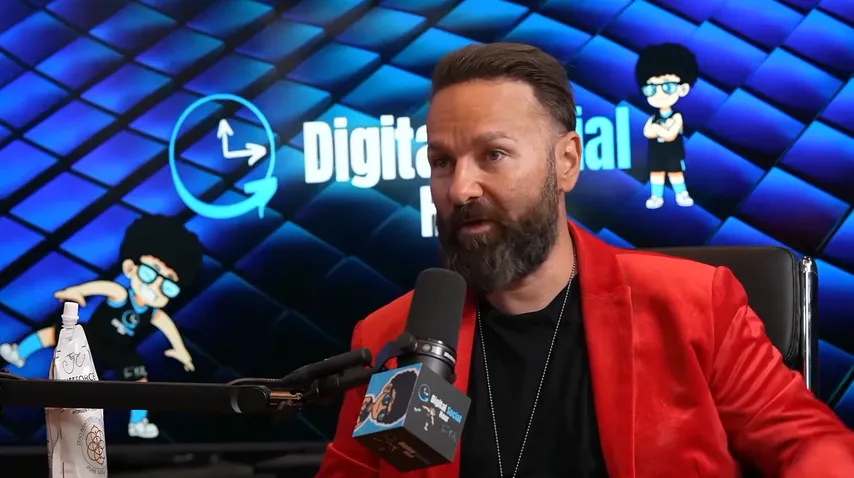
– "Well, I'm thinking of Phil Hellmuth when you talk about that, because all the professional high-stakes guys say he's like average or whatever, or like good, but not like the GOAT."
– "So the way I always describe Phil is simple, right? And he hates it because he can't... I don't know why he wants me to acknowledge him more. I say he has the best track record in the World Series of Poker history ever, the most bracelets, great ROI, he's done so for years.
Now, that doesn't make him the best player, especially now. There was probably a period of time where he was, you know, and was dominant. That's not the day. That's not today.
It's like, it's almost a little bit disrespectful to say to these young kids who work 12, 15 hours a day studying, that like you, at 60, you know, who are not studying anything, are better than them. And the only way to really know... Well, there really is no way to know, is you got to play against them in the high-stakes events. He doesn't. He shies away from that, you know? He just says he's better than them, and he's better than these people, but he doesn't actually play against them to prove it, right?"
– "Because the best people are in the high-stakes ones, right?"
– "Basically, yeah. Like it's a different animal."
Solvers in the 2024 WSOP
Kelly – "This year, there was a solver at the final table."
Negreanu – "Yeah, that was a mess. That was just like such a mess. We call that... what do we call that? Laptop-Gate, I think that's what they're calling it.
The last 10 years, there's always been laptops at the main event because, you know, people are watching the stream and they want to tell the guy, "Hey, here's what this guy had this hand" or whatever. So they've said quite clearly in the announcements, "You're not allowed to use any of this stuff in this room." Right? And you're not allowed to use any of this stuff when you play online poker. They're all banned.
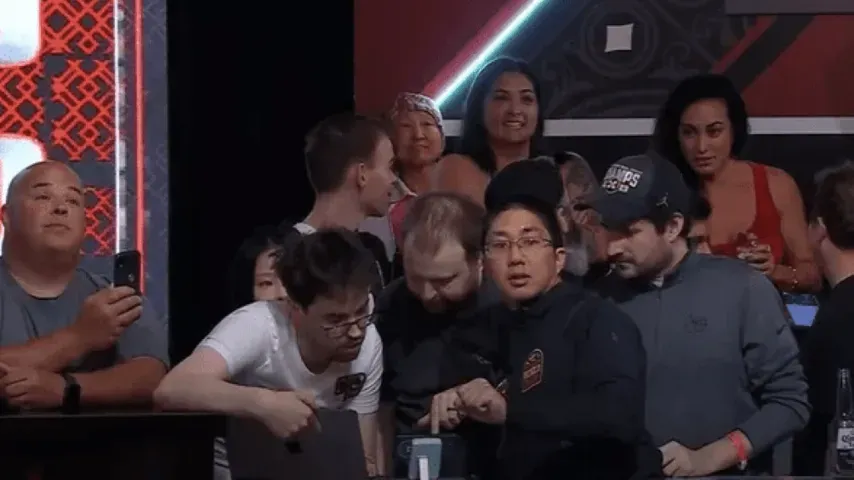
So it was really disheartening to see that it was used and nobody said anything. I think a lot of people put the onus on the World Series of Poker, but like, how can they go up to your laptop? It's like if you had it on your phone, I'm like, "Let me see your phone." You can't. That's like Gestapo-type stuff. You can't really police it that way.
But they broke... they broke like Nevada gaming laws. They're very clear. But they're not going to do anything about it."
– "Nothing happened, right?"
– "No, they're not going to do anything about it, nor do I think anything should. But the response from one of the guys who was like in charge of it was so obnoxious. Everyone in the poker community is like, "Bro, it's a bad look. This isn't good," you know? And he sort of stuck both fingers up and double down and triple down and kind of made an ass..."
[Editor note: Daniel is likely referring to Dominik Nitsche and the discussions on Twitter after the 2024 WSOP Main Event.]
– "I didn't see that."
– "Yeah, it was all over, you know, Twitter, X, or whatever the hell we call it."
– "Poker guys love Twitter, I noticed."
– "Poker guys, yeah. Yeah, I think that's like the main spot where like discussion happens. Instagram, I find to be... I have an Instagram account. I find the app, frankly, from a usability perspective, s***. I've always thought it was terrible. Like, the font is small, I can't follow replies, I don't know what's going on there. And TikTok, I just... I never got... I never set one up. So, and Facebook I don't use. So for me, I'm like Twitter exclusive, or X exclusive."
– "Elon would be mad if you said the T-word."
– "I mean, would he though? Because it's like, nobody calls it X, do they?"
– "No, I've never. It'll always be Twitter to me."
Negreanu's Mindset After Turning 50
Kelly – "So you just turned 50, the big 5-0. Any life revelations?"
Negreanu – "To be honest with you, nothing specific. It was actually just like a day like any other. But what I would describe sort of the last 30, 40 years of my life looks something like:
In my 20s, I cared what people thought about me very much so.
In my 30s, you know, you don't think you care, but you still do.
Then when I got into my 40s, I really give no f***s and I really don't care. Like, this is me. If you like me, great. If you don't, that's fine too. I'm going to have opinions and listen, you're not going to agree with all my opinions, and that's totally okay. I might not like some of yours, but that doesn't stop me from saying we could have a beer or me look at you and say you're a bad person.
We live in a society now, I think, where people are so quick to judge someone like, "Oh, look what he said in 1997 about these types of people." Right? It's like, under a different... like I use the R-word... like, okay, who cares? Right?
Do you know what that is?"
– "Yeah, I don't want to say it, but..."
– "I'm going to say it! The word... the word has a function, you know? The word retarded has a function. Okay? You know?"
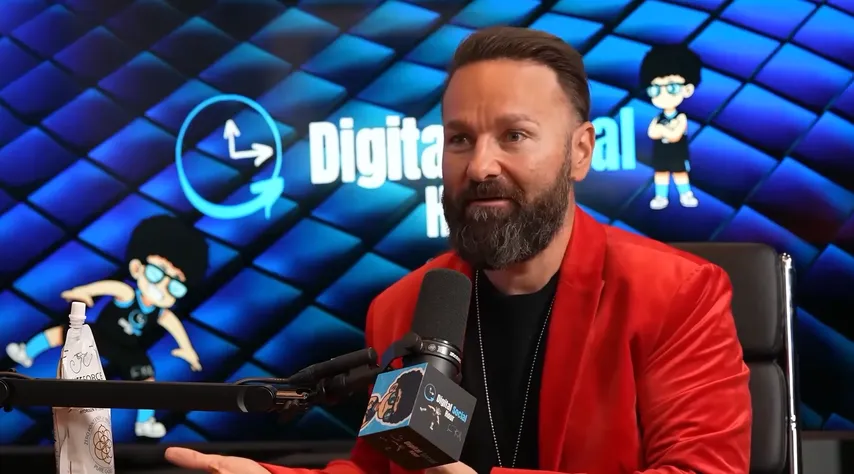
– "I used to commonly say it growing up."
– "Yeah, so did I. I mean, if you watch TV, you watch Californication, for example, which has been off the air for maybe six, seven years, that's like very commonly thrown around.
So it's all recent, you know, the sort of like demonization of specific words evolves over time. That one and the other... there's another one too that I definitely won't say..."
– "G-A-Y?"
– "No, it starts with an F..."
– "Oh yeah."
– "So there's a South Park episode about that, how the F-word is not actually used prominently for people that you would think the F-word is for. It's for people that are just jerks.
Like you cut me off in the street, like, "What up ___," you know? But it was never meant in that way. But I can understand why that word specifically is charged for people that are from that community, right?"
Longevity in Poker
Kelly - "There's not a lot of people that are still around from your era, man.
Negreanu – "No, no. Very few people like made it, if you will. For me, I think the reason that I'm still around is one, I love it. I just love to play. I love to compete, and I always like being doubted. It fuels me. I love haters. Thank you so much for all of you. Like, you really drive me because I've heard so many times how many times I'm washed up, and it's like, "Oh baby, I'm gonna prove them wrong."
– I see those comments too.
– "I love it. It's super fun for me. I don't care. Like, I really don't. It's just kind of fun for me to be able to say, "I told you so." But one of the key reasons I think that I've been able to stay relevant at the highest stakes is because of two things: self-awareness, like always being honest with myself about where I stand against my opponents. Like, are there things they're doing that are just like outplaying me? Are there things that I can improve upon? And then the humility to like take on knowledge from younger people that haven't been there yet.
Right, so combining, you know, my 30 years of wisdom in playing poker with also the new technology and the new sort of techniques, things that people are using, and sort of figure it out that way. Rather than like just poo-poo it and be like, "Ah, these kids, they don't know better."
That's kind of what my buddy Phil Hellmuth does. Like, "Oh, they don't know. Nobody knows how to play." He always says these things. He's like the most fun guy to play with because he's always talking about how they don't even know how to play. Nobody knows how to play except you, Phil. Got it."
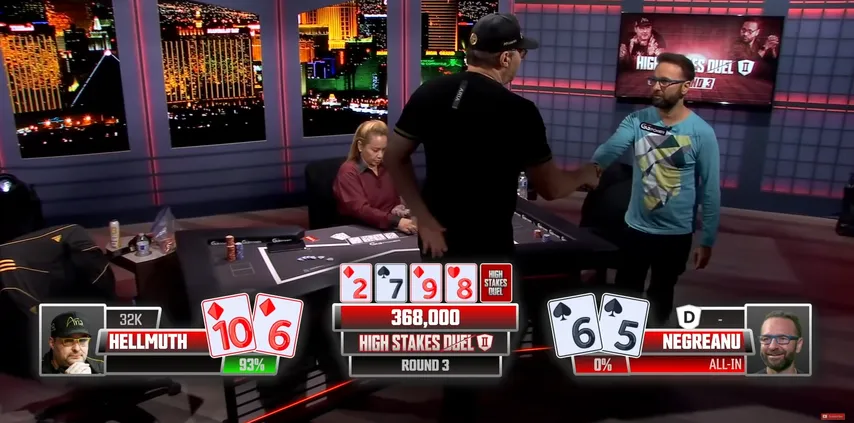
– "Have you ever been at a table where you felt like someone was just way better than you?"
– "It happened. So here's what I look at. I look... probably happens every couple years where I sort of like take a refresher. Okay, where am I at right now? Is the stuff I'm doing working really well? There was a Poker Masters, which is a big event here. I was playing against some German players. One guy named Steffen Sontheimer. He was very, very good, right? And he was talking about poker in a way that I didn't even understand what he was saying.
He was talking about combos. So I don't know what that is. I'm a professional. I should know, shouldn't I? And there were a couple specific spots that he really just outplayed me in. So that was like a wake-up call to go, "Oh boy, you got work to do."
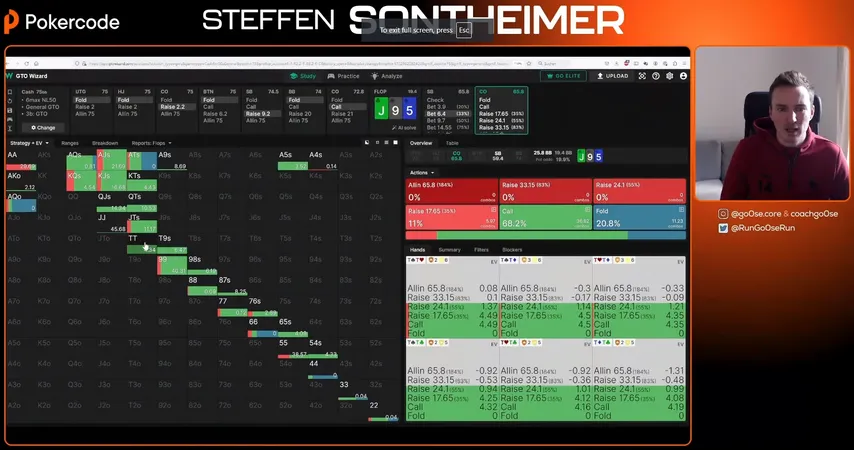
Right? So that's when I started down the path of like getting more up to date on modern theory, you know, using solvers and things like that, and really trying to drill it in. And I'll be honest with you, when I started, it was intimidating. I felt like it was above me. I couldn't figure it out. But, you know, I'm motivated, and once I got it, I start to go, "Okay, now I see. Now I see."
So I'm going to use this computer, this AI, to sort of figure out how it thinks and why it does the things it does. Not a memorization technique, which I think a lot of people misuse them because they think, "I'm going to memorize what the computer would do in this spot." No, no, no, no. That's not what you want to do. You want to use the solver to sort of understand, you know, why it chooses certain strategies that it does and then implement that.
And then I... I know when I play against players that are studied, I know what they study. So I also know how they misapply it in some ways. So I take advantage of them that way. The idea behind being game theory optimal is that you can exploit the person, right? But no human being will ever be able to do that. It's not possible unless we get Neuralink or something like that. But there's just no way that you can replicate what a solver does."
– "Wow. So it's like a game within a game. You know they know GTO, so you're thinking, "Oh, he's thinking this," and you're trying to counter that in a way?"
– "Sure. So like, I guess a good analogy, and I've used this one before, but I'll use it again. It's like you play Rock Paper Scissors, okay? So let's say, for example, I noticed that you're playing Rock every time. What should I do?"
– "Paper."
– "How often?"
– "Every time."
– "What would happen then, after about 10 in a row?"
– "They would switch to Rock, right?"
– "Well, they would know, right? So you... I'd wake you up. If you're playing Rock every time and I play Paper every time, you might go, "Hey, wait a minute. He keeps playing Paper every time."
So now you're going to switch your strategy, right? So what a better play might be is for me to play Rock 60% to 70% of the time. So you don't know and then you leave thinking, "Ah man, I was just unlucky." Right? Where in reality, I just was like taking advantage of you, exploiting you without you even understanding what was happening."
If you want to watch the full hour-long interview on the Digital Social Hour podcast, you can visit the YouTube channel.











